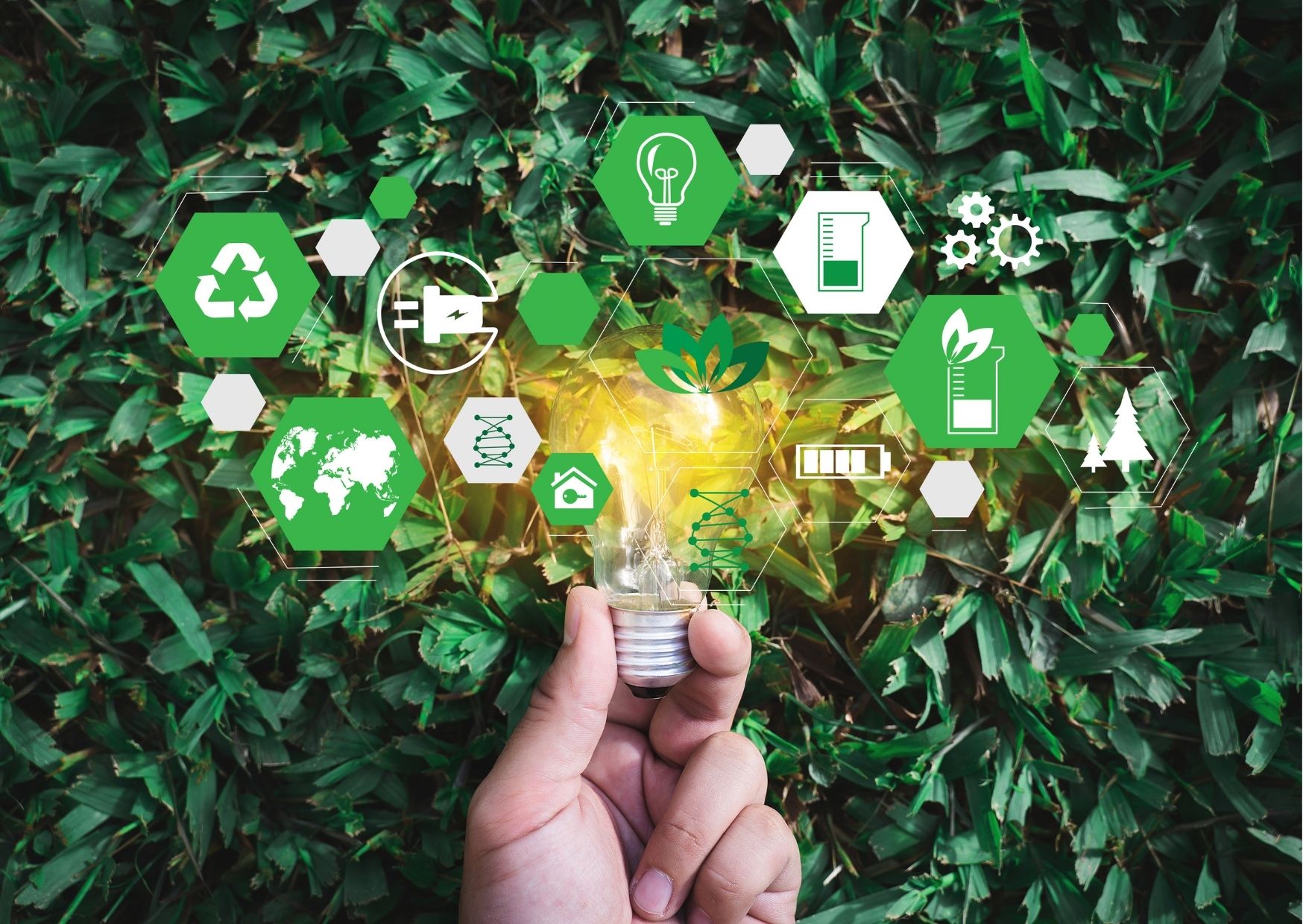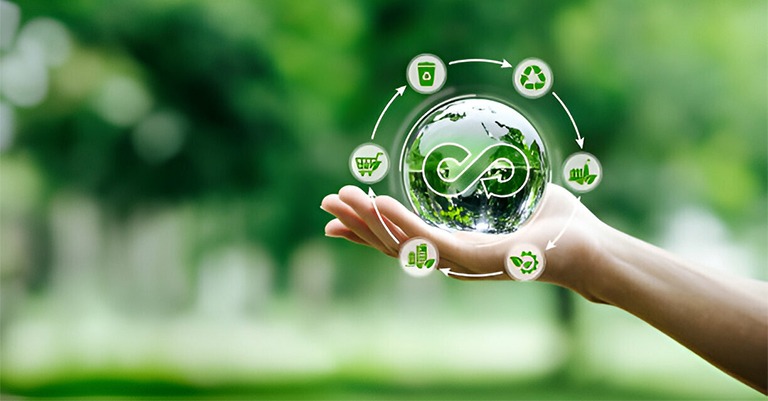How Can You Create a Sustainable Business Model For Startups?
Sustainability is also an important element for startups or other enterprise models. Products and services that are not only motivated by profit but also sensitive to social and environmental issues and offer solutions are generally quite popular among startups as sustainable business models.
For example, while startups among business models generally offer solutions to financial problems within the industry, the main purpose in sustainable startup projects is to offer products and services that provide solutions either for society or for the environment.
The term sustainability is often interpreted as ecology, environmental science-oriented strategy and other environmentally friendly issues. However, sustainability has been defined as the society achieving its economic goals without affecting the chances of future generations.
The definition of a business model is defined by Osterwalder and Pigneur as a business structure that defines, produces and captures value. A sustainable business model is a business model that creates a competitive advantage by creating superior value for the customer and contributes to the sustainable development of the company and society.
In order to create a successful sustainable startup project, it is necessary to be informed about current developments and to be aware of current ecological and social problems. Having a minimum level of financial literacy can be an essential feature for entrepreneurs managing startup projects.
Today, a significant portion of investors transfer their investments worth millions of dollars to sustainable startup projects. For this win-win relationship, it will be enough for the idea, product or service presented to be convincing.
What Is a Sustainable Business Model?

The most important characteristics of businesses that can survive are that they provide benefits to the society and the environment they live in. These two characteristics have become the prerequisites for creating demand. The third element is undoubtedly economy.
Today, when we talk about sustainable business models, these three characteristics appear as indispensable infrastructure. Some authors emphasize the subject of “creating a competitive advantage with superior customer value and contributing to the sustainable development of the company and society” as the business plan of sustainability.
In order for business models to be called sustainable, the applications of the model must match an economy that makes social progress and develops. Business models must ensure that economic growth is kept away from environmental damage.
The main element of a business’s survival is economy. The main condition for all economic support to be sustainable, whether in the short term or in the long term, is the regular provision of economic resources that feed the activities without interruption and in a way that allows the activities to continue at an effective level.
However, when the main purpose of a business is only monetary returns, problems arise in terms of sustainability. While businesses earn monetary gains, they must prioritize the contribution they will make to the environment and society.
Why Is Environmental Sustainability Important In Business?
The concept of environmental sustainability covers the dimension of sustainability related to the protection of the environment and natural order. It is a very important concept for the protection of the natural order and not to damage the self-renewal feature of resources.
The areas covered by environmental sustainability can also be considered as areas that affect the environment. These areas also cover the physical risks that institutions may face.
For example, climate change resulting from greenhouse gas emissions causes extreme natural events. These events have the potential to hinder the production activities of institutions. Institutions that do not want to experience such a scenario set emission reduction targets and take action to reduce environmental risks.
The areas covered by environmental sustainability include; raw material use, energy consumption, greenhouse gas emissions, waste management, biodiversity and supply chain. These areas are a roadmap for many responsible environmental practices on an individual and institutional level.
Sustainable business models are business methods that base their activities on sustainability principles and aim to achieve environmentally, socially and economically balanced results.
These models take into account the efficient use of natural resources, reduction of carbon emissions, waste management, social equality, labor rights and many other sustainability factors.
How Can You Integrate Social Responsibility Into Your Business Model?
Sustainable business models are built on a long-term vision to meet the needs of future generations. These models represent an approach adopted by companies that are profit-oriented but also consider environmental and social responsibilities.
Instead of just making profits, businesses develop business models that are compatible with sustainability goals such as protecting natural resources, using environmentally friendly production methods and improving their social impacts.
These business models are successfully implemented in various sectors. For example, business models for the renewable energy sector offer solutions to reduce fossil fuel use and encourage the use of energy sources that are less harmful to the environment.
Social entrepreneurship is an example of companies operating with the aim of developing business models focused on solutions to social problems.
What Is The Role of Circular Economy In Business Sustainability?
Sustainable business models are becoming increasingly important in the business world today. These business models enable businesses to fulfill their environmental and social responsibilities and achieve economic success at the same time. The impact of sustainable business models on the economy is quite extensive.
There are many approaches that increase sustainability among business models for the circular economy. Sustainable start-up projects that use resources efficiently and offer solutions to environmental and social problems contribute greatly to the circular economy.
In both developed and third world countries, the circular economy makes positive contributions to the national economy.
The circular economy reduces waste, protects resources, reduces costs and offers solutions to environmental and social problems. This is inspiring for sustainable business models and new startups.
How Can You Measure The Sustainability of Your Business?
There are some standards for measuring the sustainability of businesses. Startups with sustainability concerns among businesses use the following criteria: Carbon footprint, waste management practices, supply chain sustainability, analysis of social responsibility results.
Startups are ranked by their carbon footprint based on the amount of greenhouse gasses they produce during their production processes and the damage they cause to nature. Startup models with low or zero carbon footprints are more attractive to investors.
At the same time, the amount of water and energy used by businesses and the amount of waste generated are also important factors considered in the sustainability criterion. These rates must be reasonable for investors.
What Are Some Case Studies of Sustainable Business Models In Action?
We can mention Less for as a case study of sustainable business models in this question. Less., which aims to explain to the society that modern life can be lived by producing less waste by bringing together waste-free products and reusable sustainable packaging, was founded by two female architects.
The brand, which was founded with the aim of fighting for a sustainable future and a cleaner planet, prioritizes that its products do not harm nature and are compostable, not only during the usage phase, but also from the logistics process where they reach the consumer until the end of their lifespan, in accordance with ecological and sustainable values.
You can buy eco-friendly personal care products, baby products, wooden brushes, loofahs and beeswax products on Less.’s website, which is among the eco-friendly brands in Turkey, and you can find tips on how to be more environmentally conscious on their Instagram page.
In addition, energy and water savings are achieved through applications such as home sharing. These successful sustainable business models provide significant benefits both environmentally and economically.
It will be an important step for the future of our planet for businesses to adopt and implement sustainability principles by taking inspiration from these models.
How Can You Attract Investors With a Sustainable Business Model?
In the entrepreneurship world, a successful start-up is not only about a good idea but also the resources and guidance needed to bring it to life. This is where angels come into play and investors provide financial support to young entrepreneurs with their private capital.
However, the role of these investors is not limited to financial contributions. Investors also guide entrepreneurs with their sectoral knowledge, experience in the business world and a wide network of connections. This mentoring plays a critical role in overcoming the challenges that the start-up may face and making the right strategic decisions.
For a startup with a new sustainable business model, it is a great advantage to benefit from the investor’s experience in matters such as correct positioning in the market, establishing strategic partnerships, or introducing its product. In short, angel investors play an important role in establishing solid foundations for start-ups not only financially but also strategically and operationally.
There are two important types of investors that you may encounter while searching for financing within the entrepreneurship ecosystem: Angel investors and traditional investors. While both types of investors can add value to start-ups, there are important differences between them.
First of all, angel investors are individual investors who invest their wealth into startups. They usually provide financing in the early stages of start-ups and higher-risk periods. They provide both financial and strategic support by combining the investor’s sectoral experience, business knowledge, and connections.
What Are The Benefits of Sustainable Business Practices?

Sustainable business is an approach that aims to reduce the environmental, social, and economic impacts of businesses. This approach allows businesses to consider not only the needs of today but also the needs of future generations.
The benefits of sustainable business can be divided into 3 categories: environmental, social, and economic. Sustainable business is a method that aims to minimize negative impacts in these areas. This method allows businesses to consider not only current conditions but also the needs of future generations.
When a business adopts sustainable working methods, the benefits gained often go beyond reducing the carbon footprint in the workplace. It is believed that sustainable business policies can cause a loss of money and time just to benefit the environment.
However, sustainable policies should be an important part of every business strategy by providing various advantages to the company’s reputation and profit. Several advantages such as competitive advantage, cost savings, risk management, innovation, and employee engagement guide businesses on their sustainability journey. Corporate sustainability plays an important role not only for the success of businesses but also for the health of our world and society.
What Are The Challenges And Solutions In Implementing Sustainable Business Models?
Whether the business world can establish an environmentally friendly and sustainable business model is currently a controversial issue. Skeptics who argue that the concepts of profit maximization and sustainability contradict each other and cannot come together believe that companies are programmed to sell us products we do not need and to sell more every year, while the only way to sustain our environment is to consume less.
Despite this widespread understanding, it is also certain that the reactions of the international environmental opposition to the business world have evolved and changed form over the years.
Protests, where all major companies’ industrial products were categorically boycotted, are a thing of the past. Nowadays, we frequently come across cleverly designed protest methods that force companies to change their business practices, use guerrilla marketing tactics of the business world, and reach a large number of people in a short time.
The best examples of this are the campaigns carried out by Greenpeace for Nestlé and Apple. In response to this evolution in environmental pressure groups, companies have also changed their perspective on the issue.
Over time, important figures in the business world have developed a belief that sustainability is not just about the environment and society and that the long-term profitability of companies depends on the sustainability of the environment and society.
For many companies, launching environmentally friendly products and integrating environmental processes into their business models have become seriously profitable investments. General Electric’s business line, Ecomagination, which produces environmental solutions, has reached a turnover of $20 billion.
What Are The Future Trends In Sustainable Business?
The European Commission Circular Economy Finance Expert Group published a report in 2019 to accelerate the transition to a circular economy. This report includes recommendations to help access financing for the transition to a circular economy and the challenges of this transition.
One of these challenges is that a common definition of the circular economy needs to be established to increase the level of financing.
As the impacts of climate change become increasingly evident, renewable energy and energy efficiency are becoming a priority for many sectors. Companies are investing in renewable energy sources and energy efficiency technologies to reduce greenhouse gas emissions and lower energy costs.
In this context, sustainability consultants help companies develop strategies for energy efficiency and renewable energy use, provide guidance on implementing energy efficiency and renewable energy projects with existing technologies and resources, and regularly monitor and report on the performance of companies’ energy efficiency and renewable energy projects.
See you in the next post,
Anil UZUN
